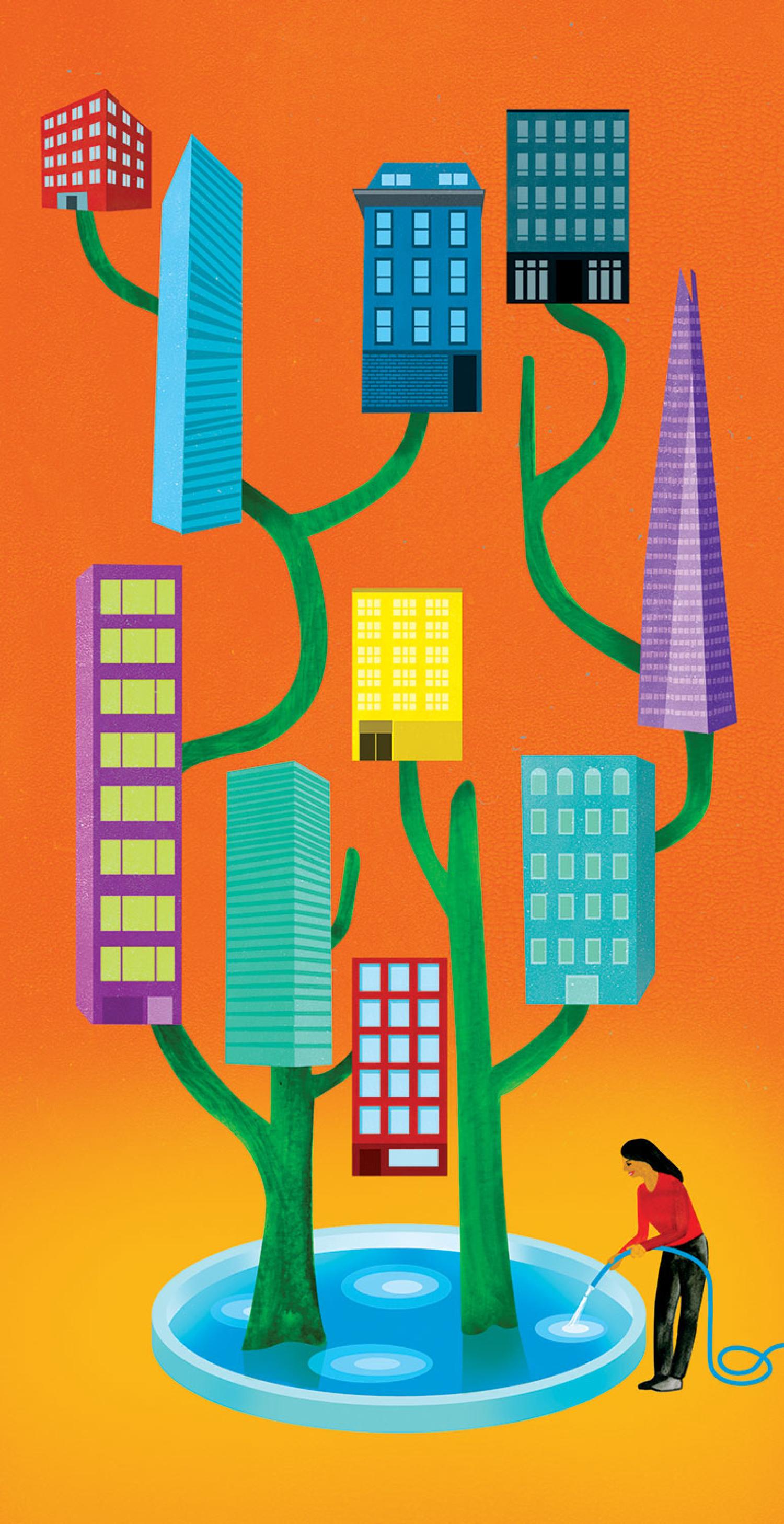
Living Buildings

Wil Srubar imagines a future in which buildings will come alive.
The materials that make up houses, or even much bigger buildings, will grow and multiply. They’ll heal their own cracks, suck toxins out of the air and glow on command. Constructing these biological structures will also generate much less carbon dioxide than today’s corpse-like skyscrapers or office towers made out of concrete.
That future may be a long way off, but Srubar, an assistant professor in CU Boulder’s Department of Civil, Environmental and Architectural Engineering (CEAE), is working to make it a reality.
“We already use biological materials in our buildings, like wood, but those materials are no longer alive,” Srubar said. “We’re asking: Why can’t we keep them alive and have that biology do something beneficial, too?”
In January, he and his colleagues published a study in the journal Matter that described their strategy for making living bricks — largely by tapping into the potential of single-celled organisms. The effort also included CU Boulder assistant professors Jeffrey Cameron, of the biochemistry department, and Sherri Cook and Mija Hubler of CEAE.
The group experimented with a type of cyanobacteria. The researchers discovered that they could mix their microbes into a solution of sand and gelatin and, with a few tweaks, nudge them to produce calcium carbonate. The result was a brick so hard you could step on it without breaking it.
“It’s a lot like making Rice Krispies treats, where you toughen the marshmallow by adding little bits of hard particles,” Srubar said.
These living bricks can also reproduce under the right conditions. The group found that if they chopped one of their bricks in half, they could use each chunk to grow a brand-new brick.
While there is still a lot of work left to do, Srubar hopes that one day suppliers could mail out sacks filled with the desiccated ingredients for making his living bricks. Just add water, and people on-site could begin to grow and shape their own microbial homes.
“Nature has figured out how to do a lot of things in a clever and efficient way,” Srubar said. “We just need to pay more attention.”
Illustration by Ellen Weinstein

